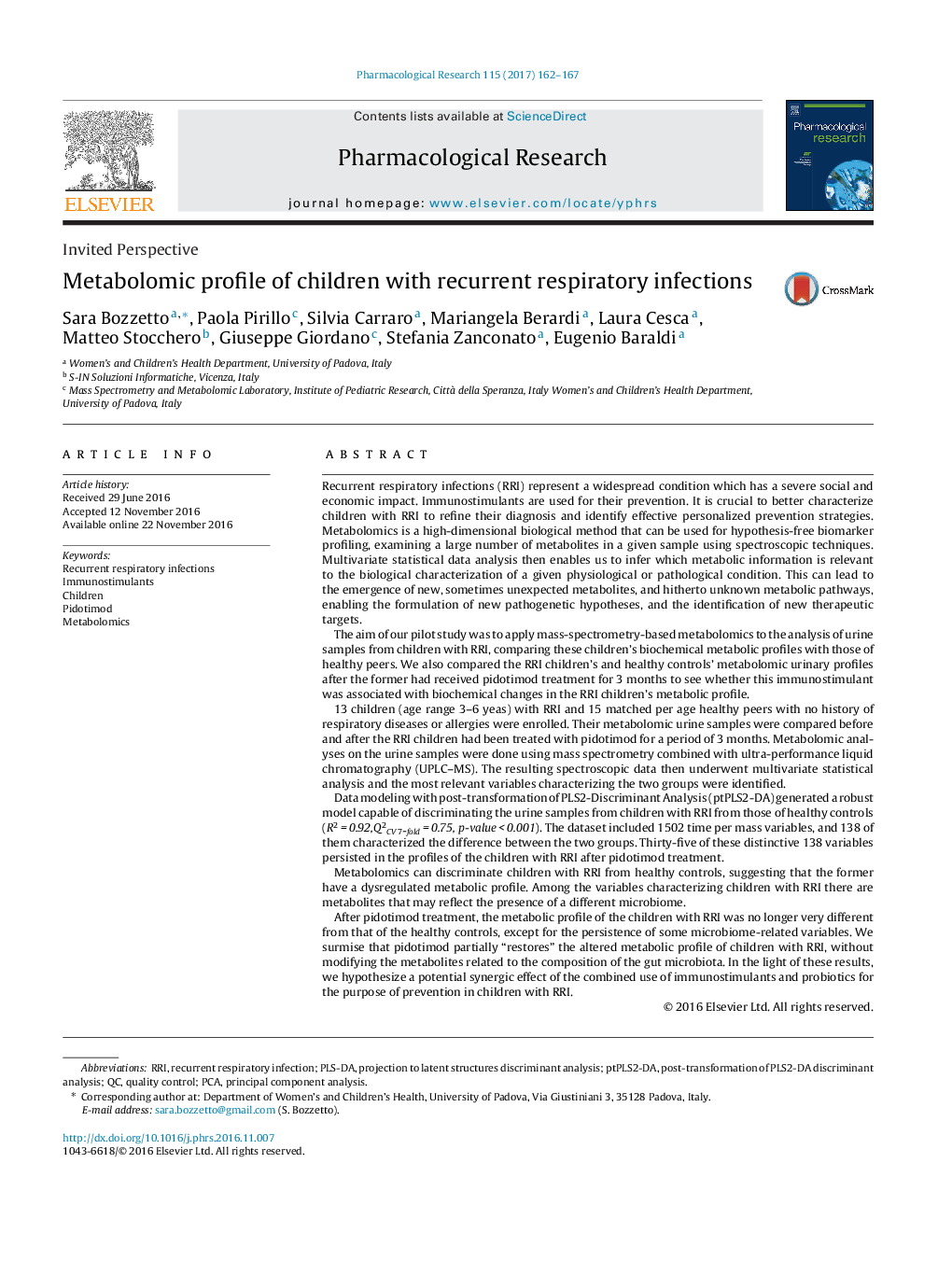| کد مقاله | کد نشریه | سال انتشار | مقاله انگلیسی | نسخه تمام متن |
|---|---|---|---|---|
| 5557531 | 1560826 | 2017 | 6 صفحه PDF | دانلود رایگان |
Recurrent respiratory infections (RRI) represent a widespread condition which has a severe social and economic impact. Immunostimulants are used for their prevention. It is crucial to better characterize children with RRI to refine their diagnosis and identify effective personalized prevention strategies. Metabolomics is a high-dimensional biological method that can be used for hypothesis-free biomarker profiling, examining a large number of metabolites in a given sample using spectroscopic techniques. Multivariate statistical data analysis then enables us to infer which metabolic information is relevant to the biological characterization of a given physiological or pathological condition. This can lead to the emergence of new, sometimes unexpected metabolites, and hitherto unknown metabolic pathways, enabling the formulation of new pathogenetic hypotheses, and the identification of new therapeutic targets.The aim of our pilot study was to apply mass-spectrometry-based metabolomics to the analysis of urine samples from children with RRI, comparing these children's biochemical metabolic profiles with those of healthy peers. We also compared the RRI children's and healthy controls' metabolomic urinary profiles after the former had received pidotimod treatment for 3 months to see whether this immunostimulant was associated with biochemical changes in the RRI children's metabolic profile.13 children (age range 3-6 yeas) with RRI and 15 matched per age healthy peers with no history of respiratory diseases or allergies were enrolled. Their metabolomic urine samples were compared before and after the RRI children had been treated with pidotimod for a period of 3 months. Metabolomic analyses on the urine samples were done using mass spectrometry combined with ultra-performance liquid chromatography (UPLC-MS). The resulting spectroscopic data then underwent multivariate statistical analysis and the most relevant variables characterizing the two groups were identified.Data modeling with post-transformation of PLS2-Discriminant Analysis (ptPLS2-DA) generated a robust model capable of discriminating the urine samples from children with RRI from those of healthy controls (R2 = 0.92,Q2CV7-fold = 0.75, p-value < 0.001). The dataset included 1502 time per mass variables, and 138 of them characterized the difference between the two groups. Thirty-five of these distinctive 138 variables persisted in the profiles of the children with RRI after pidotimod treatment.Metabolomics can discriminate children with RRI from healthy controls, suggesting that the former have a dysregulated metabolic profile. Among the variables characterizing children with RRI there are metabolites that may reflect the presence of a different microbiome.After pidotimod treatment, the metabolic profile of the children with RRI was no longer very different from that of the healthy controls, except for the persistence of some microbiome-related variables. We surmise that pidotimod partially “restores” the altered metabolic profile of children with RRI, without modifying the metabolites related to the composition of the gut microbiota. In the light of these results, we hypothesize a potential synergic effect of the combined use of immunostimulants and probiotics for the purpose of prevention in children with RRI.
86
Journal: Pharmacological Research - Volume 115, January 2017, Pages 162-167
